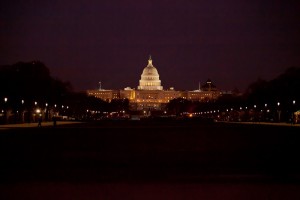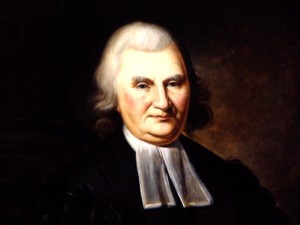Listen to or download this week’s radio program:
© 2015 Don Pinson / To Download, right-click here: [Download]
Should churches teach concerning government? The real question is: What does the Bible say about civil government? Because if something is in the Bible, we who are the teachers in the Body of Christ are under God’s call to teach it. We must declare “the whole counsel of God”. (Acts 20:27) So let’s look at what the Bible teaches concerning the reason for, and the structure and spirit of, civil government.
God’s reason for creating civil government is stated very plainly in 1 Peter 2:13-14,
“Submit yourselves to every ordinance of man for the Lord’s sake: whether it be to the king, as supreme; Or unto governors, as unto them that are sent by him for the punishment of evildoers, and for the praise of them that do well.”
God created civil government for “the punishment of evildoers”. God knew that once we rebelled against Him in the Garden of Eden, the selfishness that entered mankind would move one man to take away the rights of another man. Thus, civil government is God’s minister to punish the one who would take away another’s “life, liberty, or [property]”. This is the only way to slow down the selfishness in man and to keep the crime rates low. Physical punishment is the only language the sin root in man understands. This is civil government’s one—and only—purpose, according to the Word of God.
So what is the structure for civil government? Throughout history, there have been five forms (or structures) of civil government which have been tried by men. There is monarchy (or the rule of one). This is the most often used form, and, as Bill Federer says, “It is the default form of civil government”. When other forms of government fail, government always becomes a dictatorship. Then there is oligarchy (rule of a few), democracy (rule of the people’s will), and anarchy (which really is no rule at all, where each person does what is right “in their own eyes”—Judges 21:25). The last form of civil government is the form that God gave to the Jews through Moses. It is called a republic. It is government where law, chosen by the people’s governmental representatives, is the highest authority (that law agreeing with the moral law of the Bible). This is found in Deuteronomy 1 and partially in Exodus 18. Its outworking is seen all through the Biblical history of the Jews whenever they were trying to live by God’s moral law; in times of moral rebellion, their government always tended toward monarchy.
The spirit of government is the morality revealed in the Ten Commandments. No civil government which ignores the moral law of God can operate as God intended it to. Only when individual citizens are governing themselves from within, obeying the Holy Spirit’s promptings to obey the Ten Commandments, can the spirit of government be right. Only then will it give the greatest amount of liberty to the greatest number of citizens. This is the only way you can measure the greatness of a nation. Liberty in a nation is the outward extension of internal liberty produced in the human heart where Jesus is Master. The Scripture’s revelation that, “Where the Spirit of the Lord is, there is liberty” (2 Corinthians 3:17), is true in the external civil realm only if it is true in the hearts of a people in a nation.
America’s Founders clearly understood this and sought to communicate it to their  children by their writings and teachings. John Witherspoon’s statement represents them well. Witherspoon was the President of Princeton College and a signer of The Declaration of Independence. He stated,
children by their writings and teachings. John Witherspoon’s statement represents them well. Witherspoon was the President of Princeton College and a signer of The Declaration of Independence. He stated,
“A Republic must either preserve its virtue or lose its liberty…”
(Witherspoon, John. May 17, 1776, in his sermon entitled, “The Dominion of Providence over the Passions of Men” delivered at The College of New Jersey (Princeton). Varnum Lansing Collins, President Witherspoon (New York: Arno Press and The New York Times, 1969), I:197-98. John Eidsmoe, Christianity and the Constitution – The Faith of Our Founding Fathers (Grand Rapids, MI: Baker Book House, A Mott Media Book, 1987, 6th printing 1993), p. 85.)
So, is it right for the church to ignore what the Bible teaches about civil government?
Think about it; because if you don’t, someone else will do your thinking for you—and for your children! And you won’t like what that brings to you. I’m Don Pinson; this has been Think About It.

